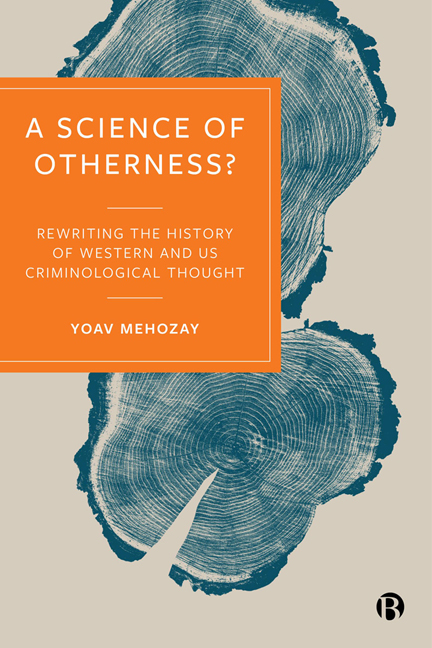Book contents
- Frontmatter
- Dedication
- Contents
- Acknowledgements
- 1 Introduction: Criminology as Otherness?
- 2 The Classical School: Otherness as an Ideology of an Imaginary Bourgeois Society
- 3 The Early Days of Positivist Criminology: An Ideology of Universalism and Otherness
- 4 Two Versions of Otherness: Between Eugenics and Modernization Theory
- 5 Otherness as Subculture
- 6 Managing the Other: Otherness in Practice
- 7 Conclusion: A Science of Otherness?
- Notes
- References
- Index
5 - Otherness as Subculture
Published online by Cambridge University Press: 27 March 2024
- Frontmatter
- Dedication
- Contents
- Acknowledgements
- 1 Introduction: Criminology as Otherness?
- 2 The Classical School: Otherness as an Ideology of an Imaginary Bourgeois Society
- 3 The Early Days of Positivist Criminology: An Ideology of Universalism and Otherness
- 4 Two Versions of Otherness: Between Eugenics and Modernization Theory
- 5 Otherness as Subculture
- 6 Managing the Other: Otherness in Practice
- 7 Conclusion: A Science of Otherness?
- Notes
- References
- Index
Summary
As we saw in the previous chapter, the production of criminological knowledge, as it transitioned out of the neo-Lombrosian era to the growing dominance of the Chicago School, maintained the foundational idea of pathology, the epicentre of otherness. Some sort of pathology, it was assumed, leads to – or at least increases a tendency toward – criminal behaviour. Put differently, the existence of some pathology differentiated offenders, considered to be deviant, from non-offenders. Mainstream positivist criminology, at that time, focused on the study of delinquent behaviour at the individual level, as opposed to the study of the criminal act and its jurisprudence, as in the classical school (Jeffery, 1959: 9). Individual criminality had been the focus of positivist criminology since the time of Lombroso or even before, and it would continue to guide the work of the scholars covered in this chapter. What had changed, as we already saw in the previous chapter, was the location of the individual pathology from internal to external: from something that could be found within the human body to something that originates in the social body. What remained constant for the aetiological positivist school in criminology was its focus on the question ‘Why do (some) people break the law?’, along with its motivation: to improve social control (Cohen, 1969: 14).
As we know, it was Garland who first asserted that positivist criminology is the criminology of the other. The conceptualization of otherness discussed here, as we have already observed from analysing the work of Charles Goring and the early days of the Chicago School, entails a difference not in kind, but in degree only. This conviction deepened with modernization theory, as it advanced a cultural understanding of deviant behaviour. Accordingly, this difference was the result of a cultural lag, to use C. Wright Mills’ term (1943: 176), or cultural– historical atavism, if you will – meaning that the deviant other is stuck in an earlier cultural evolutionary stage, with the extent of the gap represented by the degree of their degeneration (or, as it was later termed, their disorganization or strain). Yet this softer deterministic pathology of the criminal other also means that the other is receptive to correction, opening the door to different kinds of interventions.
- Type
- Chapter
- Information
- A Science of Otherness?Rereading the History of Western and US Criminological Thought, pp. 81 - 103Publisher: Bristol University PressPrint publication year: 2023



